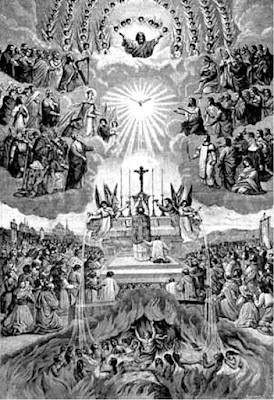Ok, our votes have been cast and now whoever will be seated in the legislature, Congress, and the Whitehouse is who we have for the next two, four, or six years – depending on the office. Regardless of who won or lost, whether it was our preferred candidate or not, we all have a job to do. The job? Living our baptismal call to holiness.
One of the interesting things about our faith is we recognize the world is not, nor has it ever been perfect. Some look aghast when confronted with St. Paul’s call to slaves in his letter to the Ephesians (6:5-9). “Shouldn’t he be railing against slavery?” they ask. In the same letter they are astounded to hear him calling for prayers for the emperor. How can he do that when the emperors were so evil???
When we read Paul’s letters, as well as the whole of the Gospels, we realize that our job isn’t to set the world right. Our task is a much weightier and more important one: to set ourselves right in following The Way, the way Christ marked out for us to Calvary, the tomb, and on to the right hand of the Father – heaven.
We often forget, sometimes willfully so, that the only thing we can really control is our own efforts at pursuing perfect love, perfect holiness (they’re the same, really). And we are called to walk that path in good times and in bad, whether it is easy or especially when it is particularly difficult or challenging.
What’s more, now that the crescendo of lies, subterfuge, and posturing that goes with the campaign season are past, we are called to respond with love, with forgiveness, with understanding.
Would it be nice to live in a world, country, state, city where God’s view of the world, his plan for human life is the pattern for our efforts as a society? Of course. But we don’t live in that world. We live in a world where our most cherished beliefs have been bartered on one side and flat out mocked on the other for months now. Do you want to live in a world where life is cherished from conception to natural death? Then live your life in a way that gives witness to the dignity of every person from conception to natural death. The government has not of late, nor will it do this for us. It is up to us to live our lives as a witness to God’s wonderful plan for human life and dignity.
If we live his plan faithfully, we will come to know salvation. Not only that, but our witness will draw others to Him as well. You never know. Maybe, if enough of us redouble our efforts at living the life we profess, we might even see our city, our county, or even our state reflect these values in law. But first, we must live in integrity and teach our children to do so. Until we do that, all the rest is just so much shouting and posturing.









.jpg)












